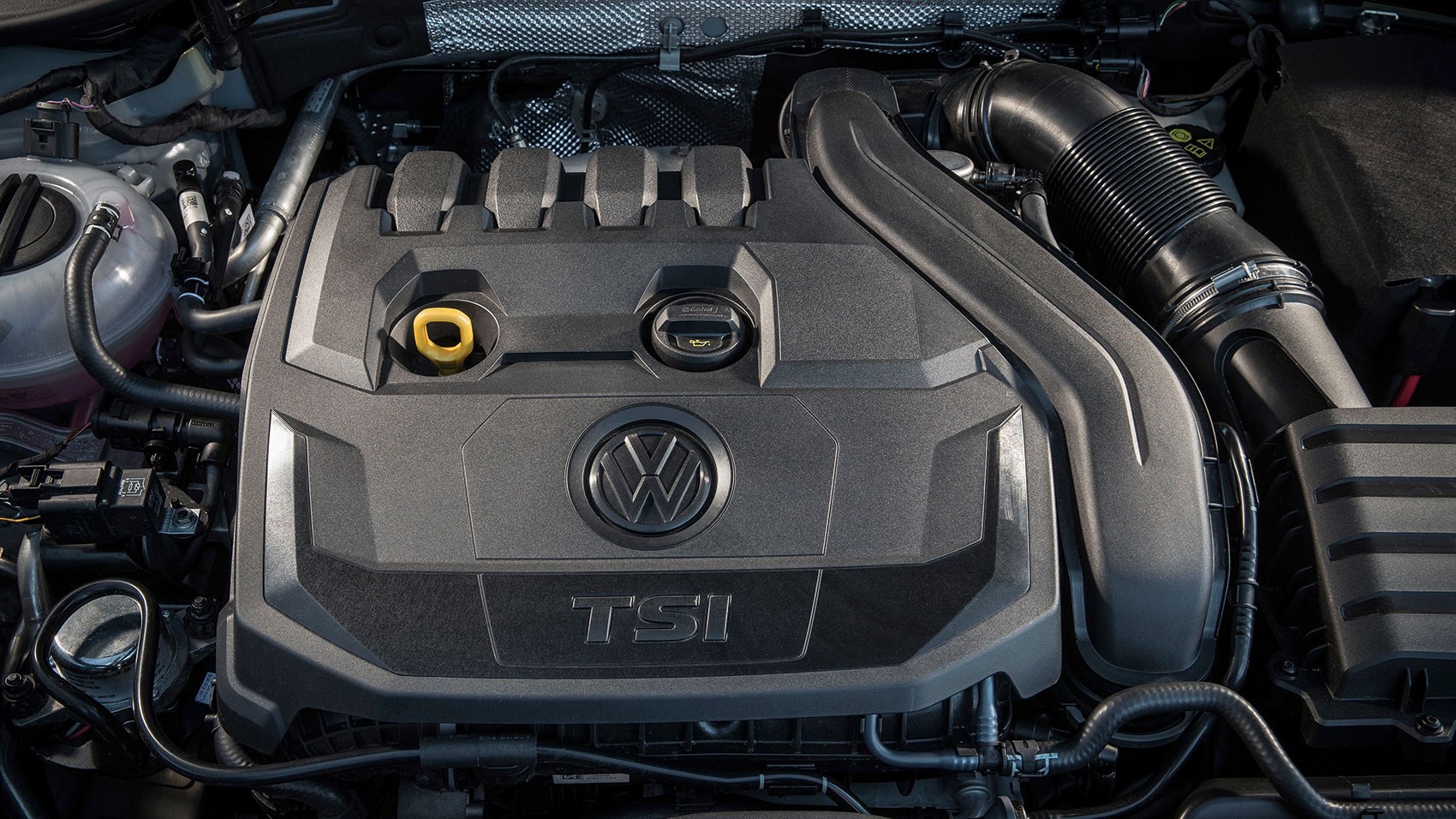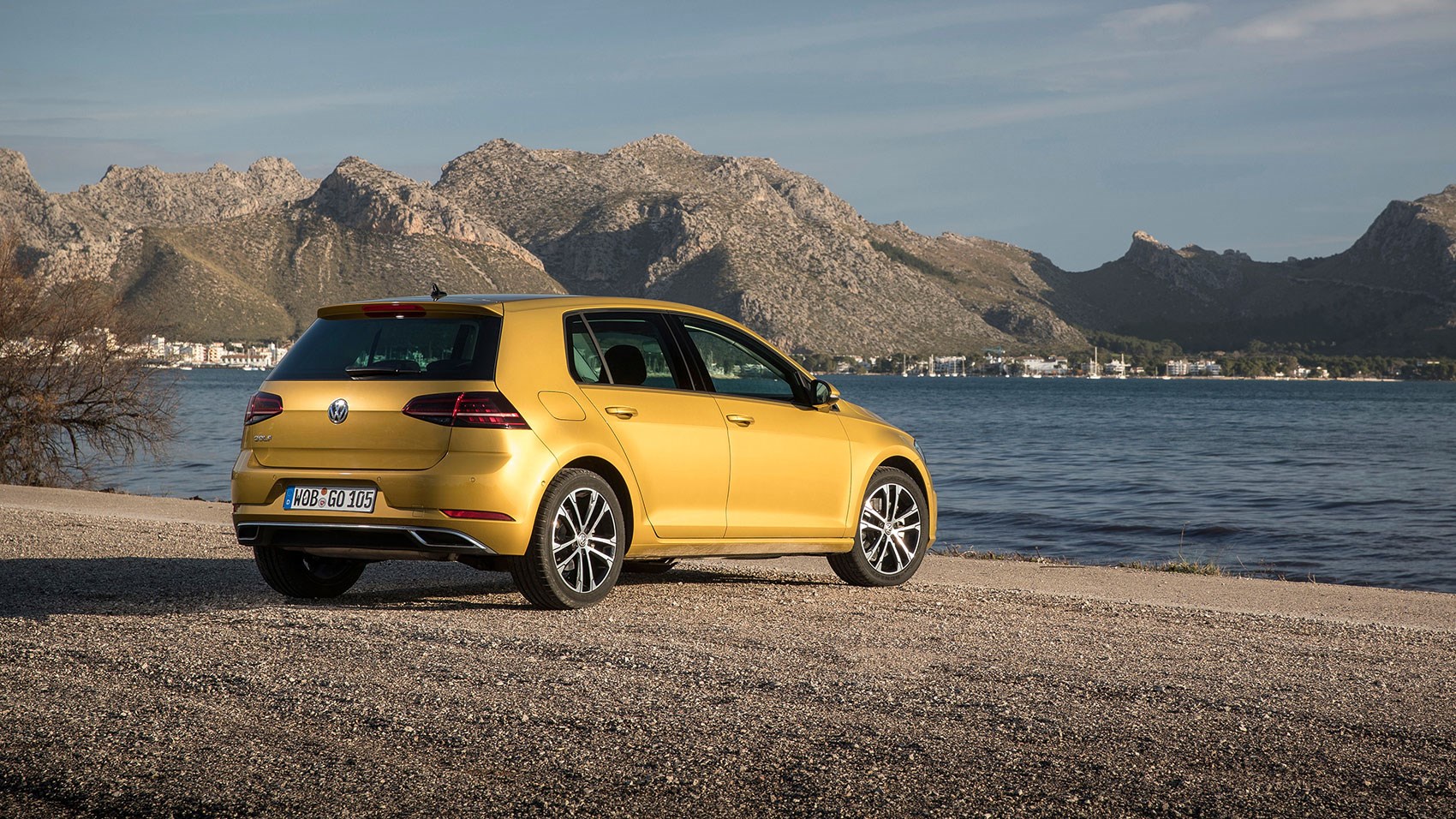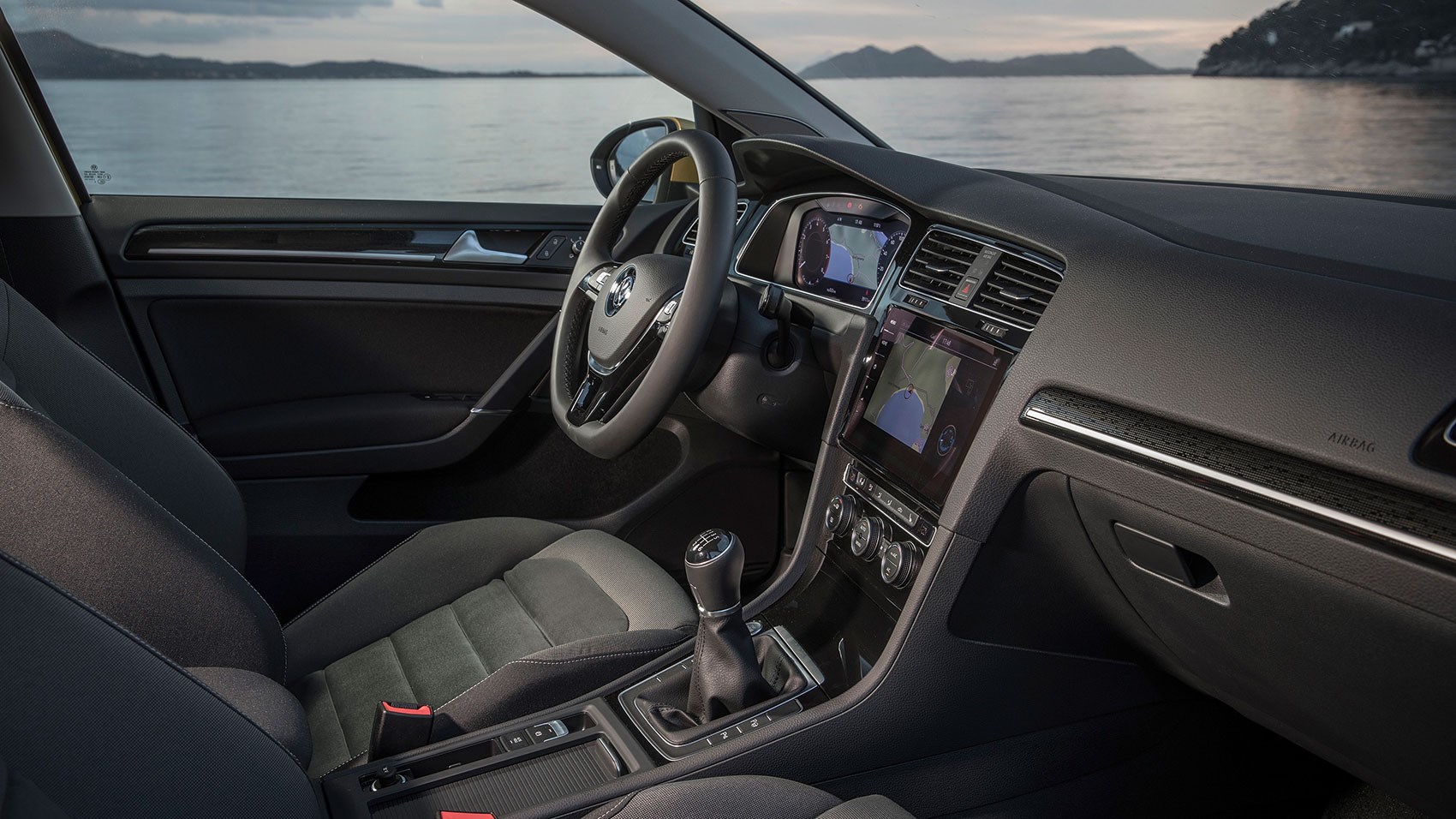► Key new ‘Evo’ engine on updated Mk7.5 Golf
► Most potent 148bhp version does 56.5mpg
► Rev-happy motor, new seven-speed DSG ‘box
For all that Volkswagen is muttering about the Mk7.5 being the first ‘significant’ mid-life revision in 40 years of the VW Golf range, you might be forgiven for thinking where the significance was hiding.
Ok, so there’s a fancy new infotainment system and some other extra-added tech to go with the facelifted bumpers and lights, but nearly all the engines carry over from the 2016 Golf range, and VW is making no wild claims about upgrades to the chassis or other fundamental engineering changes.
However, shortly after the new Golf reaches UK showrooms at the end of March 2017, there will be a new engine added to the line-up: a 1.5-litre TSI Evo turbo petrol that replaces the old 1.4.
And we’re pleased to report it’s rather good. Read on for our full Volkswagen Golf 1.5 TSI Evo 150 DSG review.
What’s so special about the Golf’s new 1.5-litre engine?
The new Evo motor (below) will come in two flavours initially: a super-efficient (apparently in the real world as well as on paper) 128bhp BlueMotion version that can completely shut down off-throttle to save fuel like the Golf GTE hybrid, and a thrustier 148bhp variant with active cylinder deactivation.

Sadly, VW only had the latter available to try at the launch event, so we’ll just have to wait and see how clever the BlueMotion variant is – though suffice to say the firm is expecting an increased take-up of petrol and alt-fuel drivetrains this time around. Funny that…
Fortunately, the 148hp model isn’t about to stand for any moping here. Junior GTI anyone?
Junior GTI? Don’t make me laugh
In an experience akin to our first time driving the original 1.2-litre TSI Polo, it is quickly clear that VW has built a bit of a cracker here.
Calling it a junior GTI would be going too far – there are no bespoke chassis mods or anything, it’s just a regular addition to the line-up – but from the noise it makes to the way it zings through its rev range, this is an engine that just wants to get up and go.
Any thought of achieving the claimed 56.5mpg fuel economy potential very rapidly goes out the window and is left in the dust on the road behind you.
It makes a striking contrast to the Golf GTD. For while that diesel is billed as a true performance model, it’s the TSI that feels lighter on its feet, keener to turn in and snaps harder at the horizon. And that’s with the Dynamic Chassis Control options fitted on both models.

It also brings the Golf’s new seven-speed DSG auto to life in a way the GTD simply doesn’t; paddle-activated downchanges aren’t just cleaner and brisker, they seem to be available much earlier, too, allowing you to really throw this 1.5 about.
Perhaps it’s the reduced torque (184lb ft for the TSI versus 280lb ft for the new Golf GTD tested here) or simply the nature of a petrol engine that’s happy to spit out higher rpms when rev-matching. But whatever the reason, the DSG becomes a tool you can really enjoy on this new four-banger, instead of the fun-sponge it is in the diesel.
It can’t all be good news…
Well, there was some vibration through the driver’s seat on a constant throttle, which seems curiously un-Volkswagen – even when the VW in question is capable of running on two cylinders in such low-demand situations. Perhaps an early build issue, or symptom of a motor that’s been thrashed from cold on a press launch for several days running.
See also the comment above about the Golf’s fuel economy. No way are you going to be able to resist revving the nuts off this thing occasionally.
Remind us why else we should be excited about the Mk7.5 VW Golf?
The actual facelift is predictably Golfish – sharper, yet entirely recognisable as an updated version of Europe’s best-selling car. Enough to show the neighbours you’ve got the new one? Only if they’re eagle-eyed.
But it’s when they knock on the door and you show them the interior that the jealousy is really going to kick in – assuming you didn’t cheap-out on the options, anyway.
The new Discover Pro infotainment system, for example, is surely a must-have, as its 9.2-inch touchscreen brings a modern sleekness to the centre console that makes everything else in this class seem either too fussy or simply out of date.
Keen tech-heads will also appreciate the all-digital instrument cluster that’s made its way from Passat et al into the Golf, not to mention the in-car internet connection and the wireless phone charging.
Oh, and the Front Assist autonomous braking system now recognises pedestrians as well as solid objects like cars. Which is nice.
Is all the new tech impressive on the 2017 Golf?
Nope. Definitely do not expect to blow anyone away with VW’s claims of a first for gesture control in the family hatch sector.
This may come as part of the Discover Pro package but since it only recognises one gesture – a swiping action that has to be so carefully targeted that you’ll find yourself in danger of running the car off the road trying to see if it’s worked – it’s something of a non-event at this stage.

Similarly, while the Golf’s new Traffic Jam Assist will do the driving for you in congestion, it only works up to 37mph and appears to rely on being able to lock onto the lane markings.
So while VW is making a fuss about these ‘innovations’, they still lack the sophistication of similarly monikered technologies available in more premium products. Baby tech steps, you could say.
Verdict
This new 1.5-litre petrol is a pretty good antidote to some of VW’s recent engineering ills. No, it probably won’t ultimately prove as economical as a TDI, and yes, some rivals will involve the driver more than this latest Golf.
But as a package of perkiness, potential parsimony and perfectly-judged interior appeal, it’s tricky to think of anything in this segment that does it better. Don’t want a diesel but do want a delightful daily driver? Start here.
Read more VW reviews by CAR magazine here